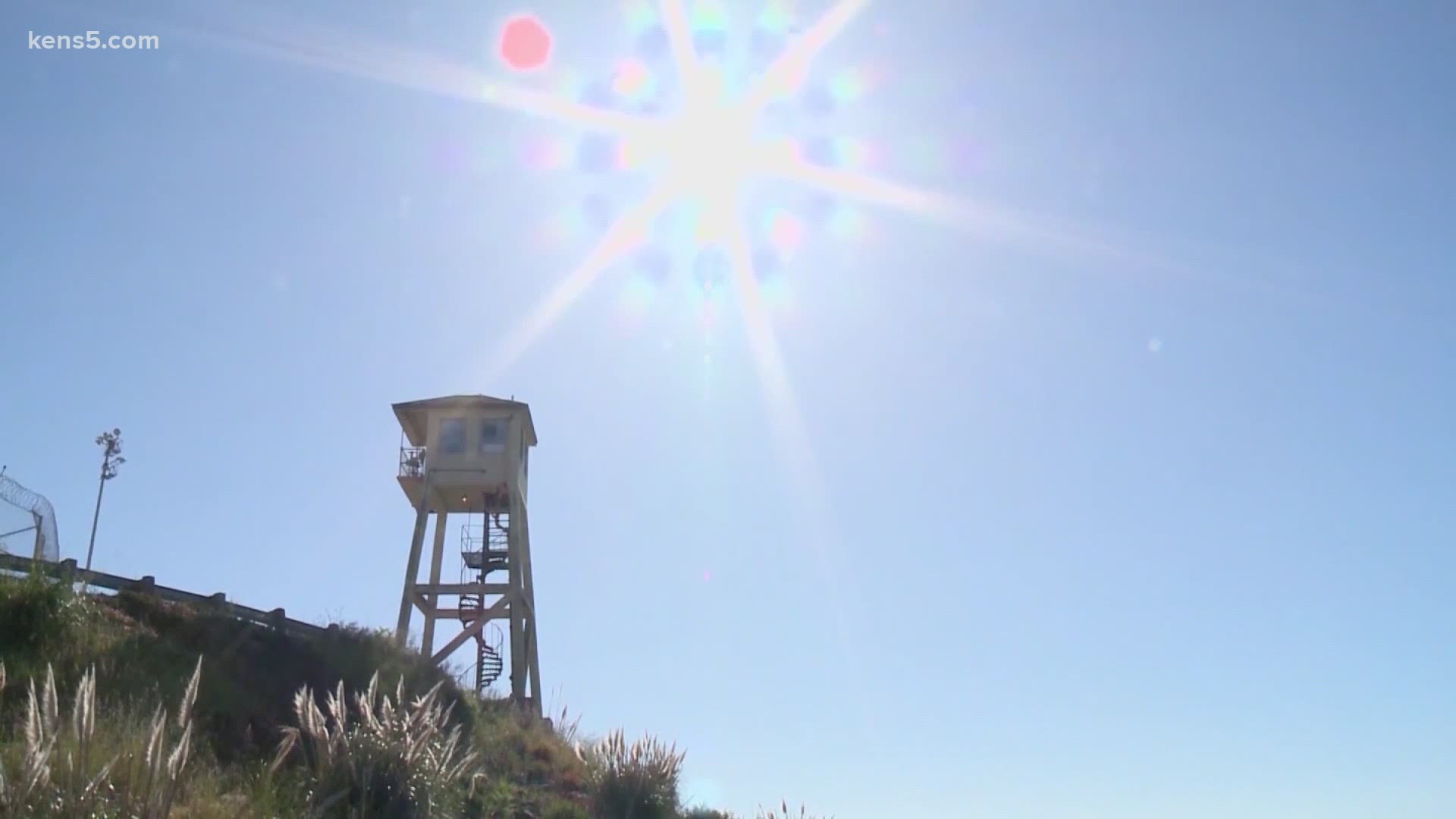SAN ANTONIO — Advocates are using a simulated prison cell to raise awareness and support for air conditioning in Texas prisons.
A mural featuring two fatigued figures graces the side of the big gray box has been traveling around Texas. The faces and hands painted to resemble an infrared camera image.
“The box is a mock cell. It’s the measurements of what most cells in the Texas prison system are,” said volunteer Jessica Dickerson. “And inside of it we heat it so that it replicates the situation that occurs in most of the summer months inside the Texas prison system.”
Texas Prisons Air Conditioning Advocates (TPAA) brought it to San Antonio to give people an idea of what it’s like inside some prison cells in Texas.
“We’re trying to get humane temperatures within the Texas prisons,” said Dr. Amite Dominick, Vice President of TPAA.
The challenge was to spend seven minutes inside enduring the heat. They try to keep the temperature around 115⁰-120⁰. Dominick says the temperatures in some prison cells can get much higher.
“This problem has actually existed for decades,” Dominick said. “We have documented temperature logs as high as 150⁰.”
According to the Texas Department of Criminal Justice, out of 99 prisons, 30 are fully air-conditioned. That leaves 49 partially conditioned and 20 formally without A/C Except for certain areas.
“All units have some units that are air-conditioned,” said Jeremy Desel, Director of Communications for the TDCJ. “But, there are 20 units that the common areas or sleeping areas of the units for inmates are unairconditioned but for some relief, respite areas, like chapels and those sorts of things that are air-conditioned.”
“It’s one thing to experience it here. It’s a different thing to feel it and experience it,” Dickerson said.
Dominick says it’s a problem that needs to be fixed not only for incarcerated Texans but also for corrections officers who must work in those conditions. She also says it’s costing the state money.
We’ve got worker compensation cases. We’ve got lawsuits that are levied that are costing the state millions of dollars.”
TPAA is asking people to support house bill 1971, aimed at correcting this issue. It’s scheduled for a vote Tuesday, May 11.
“Hopefully it encourages them to contact their legislators and tell their legislators that they need to fix this problem finally,” Dominick said.
She said that most people lasted about five minutes during the challenge. For many participants, it was hard to imagine enduring the conditions for more than a few minutes.
“It was just absolutely unbearable even for five minutes,” said Savannah Eldrige, one of the participants.

